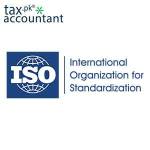
To successfully register a company in Pakistan, entrepreneurs must navigate a structured process that involves preparing and submitting various documents.
In this blog post guide, we will discuss about the essential documents required for company registration, the steps involved in the registration process, and additional considerations for new business owners.
Understanding Company Registration in Pakistan
Company registration in Pakistan is governed by the Companies Act of 2017, which outlines the legal framework for establishing and operating a business entity. The Securities and Exchange Commission of Pakistan (SECP) is the regulatory body responsible for overseeing company registrations. Entrepreneurs can register different types of companies, including Private Limited Companies, Single Member Companies, and Public Limited Companies.
Importance of Company Registration
Registering a company provides several benefits, including:
- Legal Recognition: A registered company is recognized as a separate legal entity, allowing it to enter contracts, own assets, and incur liabilities independently of its owners.
- Limited Liability: Owners of a registered company enjoy limited liability protection, meaning their personal assets are safeguarded against business debts.
- Access to Funding: Registered companies can access loans and investments more easily than unregistered businesses.
- Credibility: A registered business enhances credibility with clients, suppliers, and financial institutions.
Documents Required for Company Registration
To register a company in Pakistan, the following documents are typically required:
1. Identity Documents
- For Pakistani Nationals: A copy of the Computerized National Identity Card (CNIC) of all founding members.
- For Foreign Nationals: A valid passport and any necessary visas.
2. Memorandum of Association (MoA)
The MoA outlines the company’s objectives, scope of activities, and the relationship between the company and its shareholders. It must include:
- The name of the company.
- The registered office address.
- The nature of the business.
- The liability of members.
3. Articles of Association (AoA)
The AoA defines the internal regulations of the company, including the rights and duties of the directors and shareholders. It governs how the company will be managed.
4. Proof of Registered Office Address
This can be established through:
- A rental agreement.
- A title deed if the property is owned.
- A recent utility bill in the company’s name.
5. Bank Statement
A bank statement or a deposit slip is required to show that the minimum capital requirement has been met. This is particularly important for Private Limited Companies.
6. National Tax Number (NTN)
Before commencing business operations, the company must obtain an NTN from the Federal Board of Revenue (FBR). This number is essential for tax purposes and compliance with tax regulations.
7. Digital Signature Certificates (DSC)
Digital signatures are required for online submissions and facilitate the signing of documents electronically. All directors and shareholders must obtain DSCs.
8. Registration Fee Payment Receipt
A receipt confirming the payment of the registration fee, which varies depending on the type of company being registered.
9. Authorization Letters
If someone other than a founding member is filing the application, an authorization letter must be provided.
Step-by-Step Process for Company Registration
Step 1: Name Reservation
The first step in the registration process is to reserve a unique name for the company. This can be done online through the SECP e-portal. The name must not conflict with existing companies and should reflect the nature of the business.
Step 2: Document Preparation
Once the name is reserved, prepare the necessary documents as outlined above. Ensure all documents are correctly filled out and signed.
Step 3: Submission of Documents
Submit the prepared documents to the SECP. This can be done online via the SECP e-portal or in person at designated SECP offices. Ensure to include all required documents to avoid delays.
Step 4: Review and Approval
The SECP will review the submitted documents. If everything is in order, they will issue a Certificate of Incorporation, which signifies that the company is officially registered.
Step 5: Post-Registration Requirements
After registration, the following steps should be taken:
- Open a Corporate Bank Account: This is essential for conducting business transactions legally.
- Deposit Capital: Shareholders must deposit their respective shares into the company’s bank account.
- Register for Sales Tax (if applicable): If the business involves the sale of goods, registering for sales tax may be necessary.
- Compliance with Annual Filings: Companies must comply with annual filing requirements, including submitting annual returns to the SECP and tax returns to the FBR.
Additional Considerations
Choosing the Right Business Structure
Before starting the registration process, it is crucial to choose the appropriate business structure. Options include:
- Sole Proprietorship: Simple to set up but offers no liability protection.
- Partnership: Involves two or more individuals sharing ownership.
- Private Limited Company: Offers limited liability and is suitable for small to medium-sized businesses.
- Public Limited Company: Suitable for larger businesses that may want to raise capital from the public.
Legal Compliance
Understanding and complying with local laws and regulations is vital for the successful operation of a business. This includes adhering to labor laws, tax obligations, and industry-specific regulations.
Seeking Professional Assistance
For many entrepreneurs, navigating the registration process can be complex. Seeking assistance from legal or business consultants can help streamline the process and ensure compliance with all legal requirements.
Registering a company in Pakistan is a crucial step for entrepreneurs looking to establish a legitimate business. By understanding the required documents and following the registration process, business owners can set a solid foundation for their ventures. With the right preparation and compliance, entrepreneurs can navigate the complexities of company registration and focus on growing their businesses in Pakistan’s dynamic market.
How long does it typically take to complete the company registration process in Pakistan?
The time it takes to complete the company registration process in Pakistan can vary based on several factors, including the accuracy of submitted documents and the efficiency of the registration system. Generally, the process can take anywhere from 3 to 7 days for a straightforward registration when all documents are correctly prepared and submitted.
Breakdown of the Registration Timeline
- Name Reservation: This step typically takes 2 to 3 days. Entrepreneurs must select a unique name for their company and submit it for approval to the Securities and Exchange Commission of Pakistan (SECP).
- Document Preparation: Preparing the necessary documents for registration usually takes about 2 days. This includes drafting the Memorandum and Articles of Association, gathering identity documents, and securing proof of the registered office address.
- Registrar’s Scrutiny and Approval: Once the documents are submitted, the SECP will review the application, which can take an additional 2 to 3 days. This includes the assessment of the application and publication for any potential oppositions.
Overall, if all goes smoothly, the entire registration process can be completed in approximately 3 to 7 days. However, some sources suggest that it could extend up to a month under certain circumstances, particularly if there are issues with document accuracy or if the system experiences delays.
Factors Influencing Registration Time
- Document Accuracy: Ensuring that all documents are correctly filled out and submitted can significantly speed up the process.
- Type of Company: The registration time may vary slightly depending on whether you are registering a Single Member Company, Private Limited Company, or Public Limited Company.
- System Efficiency: The operational efficiency of the SECP and any potential backlog can also affect the registration timeline.
In conclusion, while the typical duration for company registration in Pakistan is between 3 to 7 days, it is advisable for entrepreneurs to prepare thoroughly to avoid delays and ensure a smooth registration process.
About Umair A R Mughal
Umair A R Mughal is a unique professional who seamlessly blends the worlds of technology, finance, and regulatory compliance. With a solid foundation as a Chartered Accountant and a passion for technology, Umair offers comprehensive solutions that cater to the evolving needs of businesses in Pakistan.
View all posts by Umair A R Mughal


















5 thoughts on “Documents required for company registration in pakistan”
Excellent article. I am facing many of these issues as well..